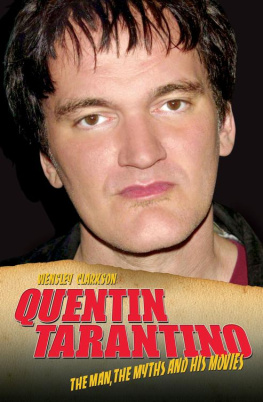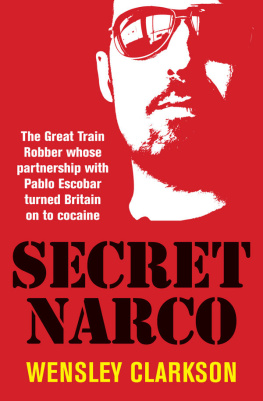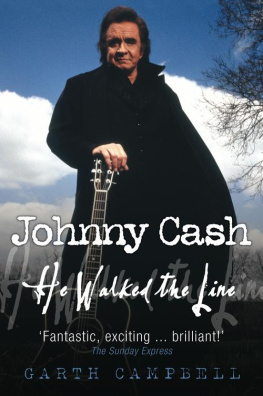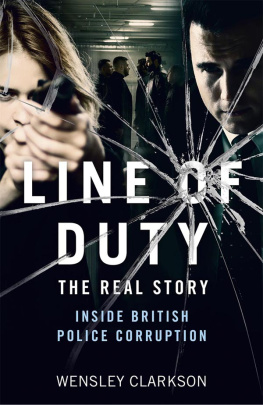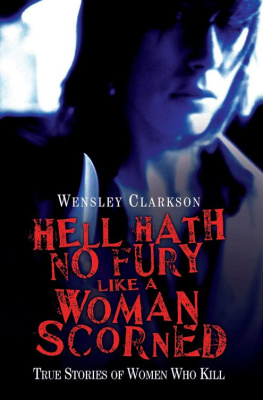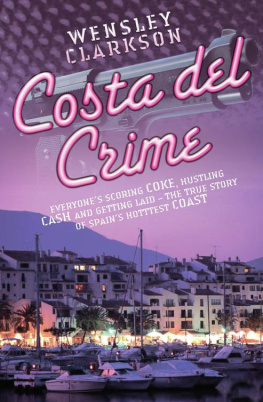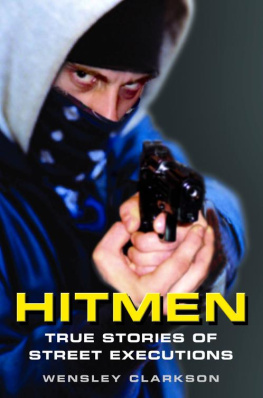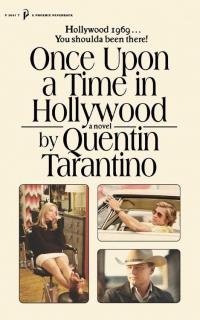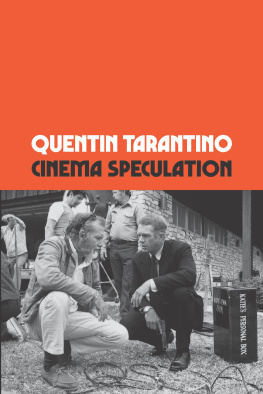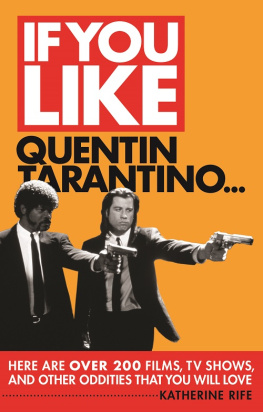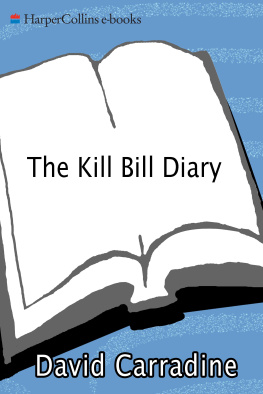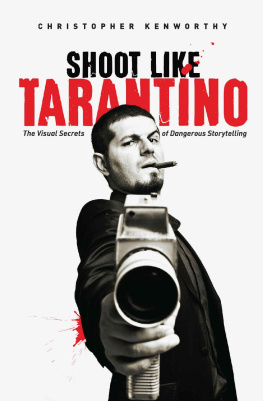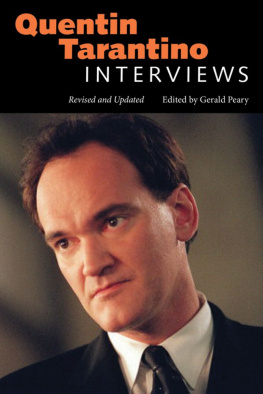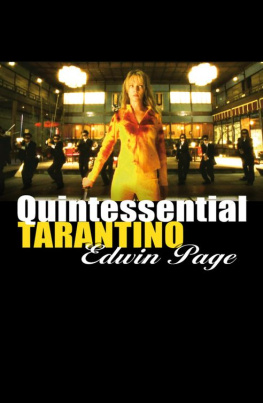I am a racist. I am a killer. I dont give a fuck, alright?
Wait a minute, wait a minute. You aint heard nothing yet
I owe many individuals who have helped make this book possible, my deepest thanks. All told, I interviewed more than 100 people, among them friends, acquaintances, writers, directors, producers, editors, artists, lawyers, publishers, video store clerks, salesmen, college students, cops, ex-convicts, agents, hookers, private eyes, reporters and down-on-their-luck dropouts.
Some of these sources have chosen to remain anonymous. To them I offer a note of appreciation for the help they provided.
However, there are a lot of others who dont mind being thanked out loud. First and foremost, my heartfelt thanks must go to Quentins mother, Connie Zastoupil, whose help and guidance have been unswerving. Quentins one-time best friend Craig Hamann was a source of many great stories about Quentin, especially from his years at the James Best Acting School and during the long and troubled shooting of My Best Friends Birthday. Hamann stayed close to Quentin for several years and clearly remembers the problems and frustrations they both faced.
Cathryn Jaymes was Quentins personal manager for almost ten years and she kindly revealed some fascinating details about the years when Quentin was really struggling. Cathryn patiently endured many hours of questioning and, unlike many people in Hollywood, always returned my calls graciously and swiftly.
Scott Spiegel provided marvellous descriptions of Quentins struggle through the seedier areas of Hollywood. His off-the-wall, movie-geek mentality gave me a unique insight into the life that Quentin was leading in the late 1980s and early 1990s. The Spiegel bedroom must be the envy of movie and horror comic fanatics across the globe.
Film Threat magazine were wonderfully helpful and I have a number of people to thank, including Paul Zimmerman, who met Quentin on the way up. Now editor of the magazine, Zimmerman generously shared his memories of those early, heady days of Reservoir Dogs success. His colleague Brian Williams talked at great length about his more recent encounters with Quentin and provided a fresh appraisal that was of enormous benefit. David Bourgeois account of how he stalked Quentin at Cannes was highly amusing and incisive.
A number of Quentins friends from his days at the Video Archives store in Hermosa Beach came up with details of Quentins film addiction years. Most helpful in this regard were the Martinez brothers, Chris and Jerry.
The section on the build-up to actually shooting Reservoir Dogs owes a great deal to Monte Hellman. He welcomed me into his home and provided the inside information that lies at the heart of this book. Crew member Jamie Beardsley made an equally vital contribution with her marvellous photographs and extraordinarily accurate recollections.
Others who deserve many, many thanks include: Tina Mascara, Don Murphy, John Glatt, Joe Paoella, Cathy Griffin, Stanley Margolis, David Thomas, Alex Stone, Paula Eifeen Eckert, Rand Vossler, Mike White, Mark La Femina, Paul Bartel, Rich Turner, Joe Carabello, Jack Lucarelli, David Stein, Jeff Burr, Vinnie Mizzi, Tom Duckweed, Rupert Maconick, Jon Ryan, Martin Dune, Mark Sandelson, Jason McCue, Toby and Karim.
The Academy of Motion Picture and Science Library (Los Angeles), the Charlie. Rose Show, the Knoxville County Office of Records, the Torrance Library, the BBCs Omnibus programme, the Lincoln Center (New York), the L.A. Times, Associated Newspapers, News International, the New York Times, the Boston Globe, Vanity Fair, Entertainment Weekly, Los Angeles Magazine, the Village Voice, the New York Daily News, Variety, Interview Magazine, L.A. Weekly, Premiere, Empire, TV Guide, Playboy and the Mirror Group provided much of the background material.
T he central figure in this story, Quentin Tarantino, has changed his name twice during his life. In an effort to avoid confusion, he is referred to as Quentin throughout the book.
Some of the dialogue represented in this book was constructed from available documents, some was drawn from tape-recorded testimony, and some was reconstituted from the memory of participants.
R eader beware. This is a book about a Hollywood icon who has never shied away from speaking his mind. It does not reveal all of Quentin Tarantinos most secret or outrageous thoughts but it is the most fascinating account of his life you are ever likely to read.
Who is the man behind the public face of the worlds premier movie-maker? Whence comes his love of lifes darkness, his apocalyptic drive? How is it possible for someone with so little formal education to become the ultimate 21st-century artist?
I first came across Quentin Tarantino when we were both struggling scriptwriters in Los Angeles in early 1991. My agent suggested I read a really wacky screenplay entitled Reservoir Dogs because she reckoned it was one of the funkiest scripts she had ever come across. I read it from cover to cover in one sitting. No one had bought it at that stage, but I knew it would only be a matter of time before its author became a force to be reckoned with.
I later encountered Quentin at a horror festival in a convention centre near Los Angeles airport, not far from where, as a teenager, he had been woken by the constant thunder of jets taking off and landing. I got a feeling for my subject by watching the way he performed in front of hundreds of adoring fellow movie geeks. He worked the crowd brilliantly.
I also consulted the person who knows Quentin best his mother Connie Zastoupil. Hes riding on the crest of a wave, she declared. But Im worried that he is going too fast.
For the sake of this book, Connie agreed to open up old wounds and disclose the life she has shared with her only child. I spent many hours interviewing her, finding out about Quentins strange habits as a child and their occasionally volatile relationship. She told me that in her opinion this book was going to be the only truthful and balanced account of her sons life. She said she was sure Quentin would appreciate that you are trying to get it right. Her decision to sanction my efforts above all other books on Quentin deserves my most heartfelt thanks. Much of the early part of this book reflects her courage and determination in bringing up a child as a single parent.
My other vital source were Quentins brilliant screenplays. They tell so much of his life that they provided the thread I needed to sew the narrative together. Quentins life is his movies and his movies give us a glimpse of his life.
When we last met, Quentin was quick-witted and sharp as ever, giving the answers to questions almost before Id asked them. I greatly appreciate that he did not try and block my efforts to write this book. Although he never came on board officially, he never stood in the way of any of his friends when they decided to help me. I think the book is better as a result. With their generous contributions, a picture with words has emerged that fully conveys the unique stature of the man.

